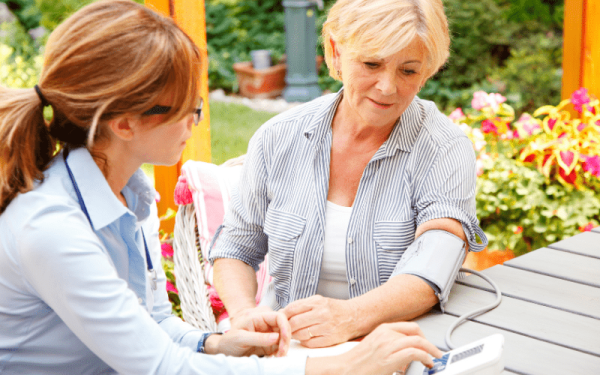Embarking on a fulfilling journey as a caregiver can open doors to countless opportunities for making a meaningful impact in the lives of those who need it most. If you reside in Maryland, exploring this rewarding profession is a commendable endeavor. This comprehensive guide will illuminate the intricacies of becoming a caregiver in Maryland, empowering you with the knowledge and resources to succeed.

Image: meetcaregivers.com
Understanding the Role of a Caregiver
Caregivers play an essential role in providing support, companionship, and assistance to individuals with physical, cognitive, or developmental needs. They help create a safe and comfortable environment while fostering independence and dignity. Caregiving encompasses a wide range of responsibilities, from personal care and meal preparation to medication management and transportation.
Steps to Become a Caregiver in Maryland
Becoming a caregiver in Maryland involves several crucial steps. Let’s delve into the process:
1. Obtain a High School Diploma or Equivalent
A high school diploma or General Education Development (GED) certificate serves as the foundation for a career as a caregiver. This educational requirement demonstrates your ability to comprehend and apply basic knowledge and skills.

Image: www.valleyvna.org
2. Complete a Training Program
Caregiver training programs provide essential knowledge and skills for this profession. Maryland offers a variety of training programs, including:
- Certified Nursing Assistant (CNA) Program
- Personal Care Assistant (PCA) Training
- Home Health Aide Training
3. Apply for Certification
Certification is a valuable credential that demonstrates your proficiency as a caregiver. The Maryland Board of Nursing (BON) offers certification programs for CNAs and PCAs. To apply, you must complete an approved training program and pass a certification exam.
4. Register with the Maryland Department of Health
All caregivers in Maryland must register with the Department of Health. The registration process involves providing your personal information, training credentials, and proof of certification (if applicable).
Tips for Success as a Caregiver
Embracing the role of a caregiver requires dedication, compassion, and a commitment to providing exceptional care. Here are some tips to optimize your success:
1. Cultivate Patience and Understanding
Caregiving often involves working with individuals who face physical and cognitive challenges. Maintaining patience, understanding, and a positive attitude is paramount for fostering meaningful connections and providing effective support.
2. Enhance Communication Skills
Effective communication is crucial in caregiving. Listen attentively, ask open-ended questions, and express yourself clearly to ensure the person’s needs are met and respected.
Frequently Asked Questions (FAQs) about Caregiving in Maryland
Q: What is the average salary for caregivers in Maryland?
A: According to Salary.com, the average annual salary for caregivers in Maryland ranges from $35,000 to $50,000.
Q: Do I need a driver’s license to become a caregiver?
A: While not a requirement, having a valid driver’s license can enhance your job prospects, especially for transportation-related responsibilities.
Q: Where can I find job opportunities as a caregiver?
A: Explore job boards like Indeed, LinkedIn, and Care.com, as well as reach out to local hospitals, nursing homes, and home healthcare agencies.
How To Become A Caregiver In Maryland
https://youtube.com/watch?v=DhIQvygP7bM
Conclusion
Becoming a caregiver in Maryland presents a fulfilling opportunity to make a positive impact on the lives of others. By following the steps outlined in this comprehensive guide and embracing the tips provided, you can embark on a rewarding career path while making a meaningful contribution to your community. If you have a passion for providing care and support, consider exploring this noble profession.
Are you ready to make a difference as a caregiver in Maryland? Let this article serve as your guiding compass on this rewarding journey.